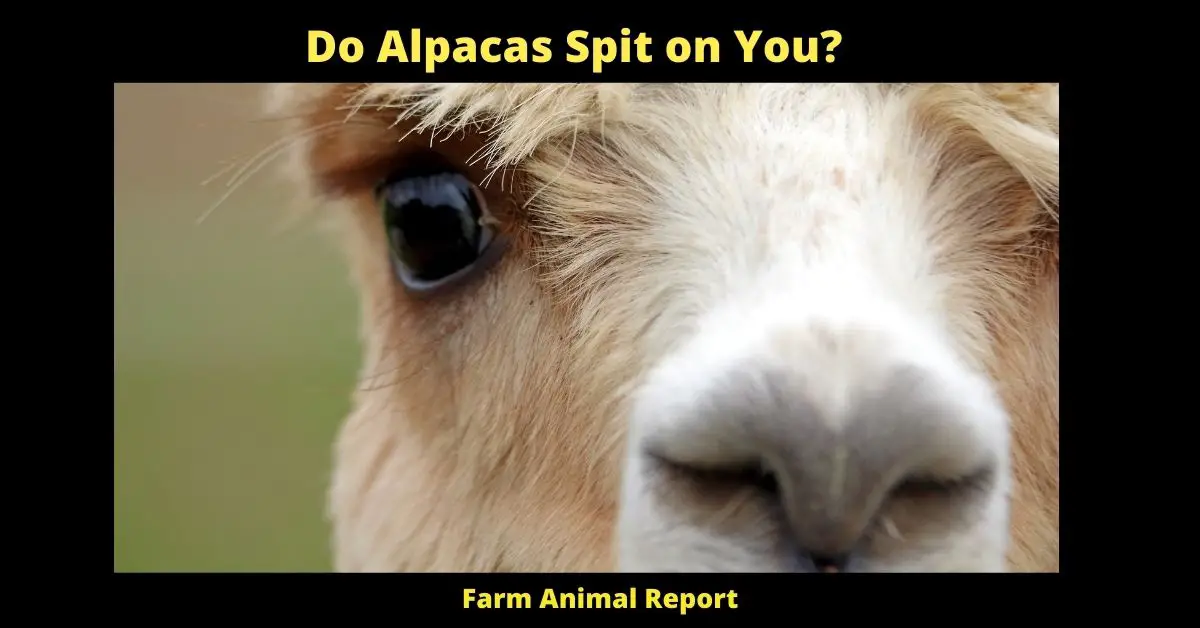Alpaca will spit on you when it feels annoying, threatened, it is not harmful but it was very effective in fending off anything that irritates it.
Do Alpacas Spit on You?
Alpacas spit. It’s a fact of life, and you should know about it if you’re considering raising one for wool or as a pet. You can’t get mad at them for spitting; they do it to keep their mouths moist and because they have no teeth. They also do it when they are nervous or agitated, so take care not to startle your alpaca when handling him or her!
First off, you should know that it is not normal for them to do so. Spitting in general has a variety of meanings depending on the species of animal. They may be marking their territory or they could simply be trying to get rid of something that is bothering them such as flies, dirt, etc.
Jump to 18 ways Alpaca Farmers make Money
Some of the Reasons that an Alpaca will Spit on You are:
- He is eating and does not want you to get too close
- He is trying to protect his territory or herd from an intruder
- You have startled him and he is trying to scare you away
- He is sick or injured and feeling defensive
- Wanting to be playful and show dominance
- If you are ever unfortunate enough to be spat on by an alpaca, it is not harmful. However, it can be a little messy and definitely unpleasant. Try to remain calm and avoid aggravating the animal any further. If you are dealing with a sick or injured alpaca, please contact a professional immediately.
How to Avoid being spit upon?
- Don’t make direct eye contact. Alpacas like to spit at your feet and legs, not directly into your eyes
- Alpaca farmers recommend petting their alpaca from the neck down; it will be less likely for an alpaca to attack you if they can’t see what is gradually approaching them (head)
- Stay calm and avoid sudden movements if you encounter an alpaca that seems agitated; it may interpret your behavior as a threat and spit at you as a form of defense.
- If an alpaca spits at you, try to stay calm and avoid making sudden movements.
- If the spit lands on your skin, it is important to clean the area with soap and water as soon as possible.
- Alpacas are known to carry bacteria in their saliva that can cause infection.
- Licking or sucking on the affected area could cause further complications. If you notice any signs of infection, such as redness, pain or swelling in the area where an alpaca spit on your skin, seek medical attention immediately.
- In order to avoid being spitted by a mother with her cria at the birth time:
- Before giving birth help her lie down and stay calm until she starts pushing
- Never leave her alone during the birth and try to keep visitors away
- When the baby is out, put it on a clean towel avoiding any contact with humans, and cover its head.
- Don’t touch or talk to it for at least an hour after giving birth in order to avoid being spitted by the mom when you approach her baby.
- Keep visitors away for the first half-hour after birth to avoid stressing the mom and her baby, which can lead to spits.
- If you are interested in getting an alpaca as a pet or simply want to learn more about these amazing animals
- Alpacas spit on people because they are afraid of them, not aggressive towards them!
- If you notice that the animal is getting agitated when someone approaches or animals in its surroundings start making loud noises it may try to defend itself by spitting at the perceived threat. It will usually stop spitting when it realizes that the person or animal is no longer a threat.
- So, do alpacas spit on you? It’s possible, but there are ways to avoid it.

Final Thoughts – Do Alpacas Spit on You?
In Summary:
Alpacas spit when they are nervous or agitated. They will usually stop spitting when the perceived threat is gone. So, do alpacas spit on you? It’s possible, but there are ways to avoid it.
If an alpaca spits at you, try to stay calm and clean the affected area with soap and water as soon as possible. Alpacas are known to carry bacteria in their saliva that can cause infection. Licking or sucking on the affected area could cause further complications. If you notice any signs of infection, such as redness, pain or swelling in the area where an alpaca spit on your skin, seek medical attention immediately


